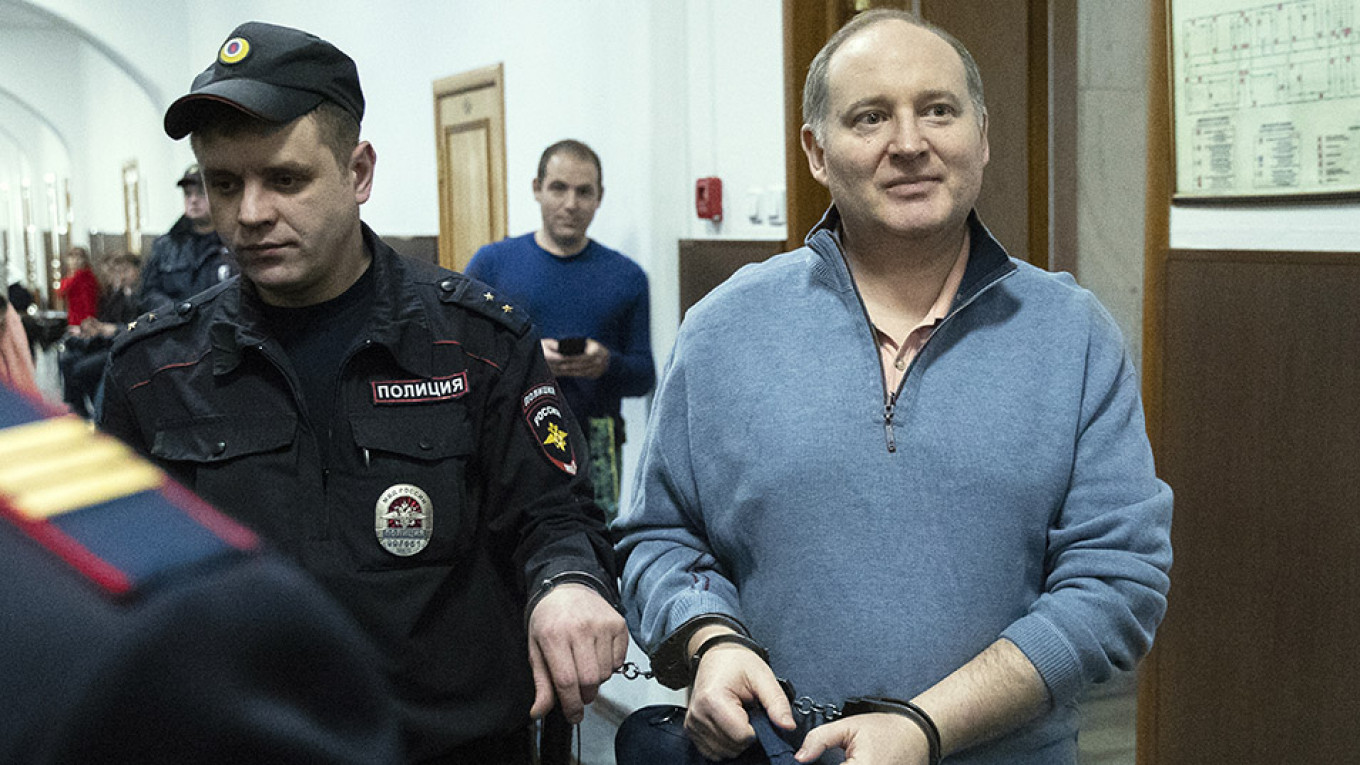
Cecile Delpal’s hopes of freeing her husband Philippe from a Russian prison briefly got a boost when President Vladimir Putin told a gathering of business leaders that house arrest may be more appropriate for the French investment banker.
But a Moscow judge had other ideas, extending Delpal’s pre-trial detention until October at a hearing this month on fraud charges that he denies. He’s been in prison for five months, after being detained on Valentine’s Day along with his American partner, Michael Calvey, the private-equity investor who founded Baring Vostok Capital Partners.
Putin “expressed a positive wish to do something good, but it was ignored,” Cecile Delpal said in an interview. “I would like to thank him for his support and ask him to continue with it.”
The case is the first time that Russia has detained a major foreign investor in a business dispute, though it’s a common occurrence for Russians. The investigation into executives of Baring Vostok, which Calvey founded in 1994 and built into one of Russia’s largest investment funds, shook already-fragile investor confidence and stunned the business community.
Even as officials seek to lure investment to Russia’s struggling economy, a government survey found that fear of criminal investigations is growing among business people despite demands from Putin and ministers to end unfounded probes.
“Now no one is safe from what seem to be particularly arbitrary decisions,” said Pavel Chinsky, head of the Franco-Russian Chamber of Commerce and Industry. “We’re in a deeply political situation and there is very little legal aspect to this.”
Macron appeal
French President Emmanuel Macron and Total Chief Executive Officer Patrick Pouyanne have lobbied Putin personally about Delpal. He’s accused with Calvey and three detained Russian colleagues of stealing 2.5 billion rubles ($40 million) from Bank Vostochny, a local lender partly owned by the fund, in a dispute with a business partner, Artem Avetisyan, who has links to Russia’s security services. If convicted, they face up to 10 years in prison.
Police told Delpal, 46, to eat well before taking him into detention after they and Federal Security Service agents searched the family’s home for eight hours on the day of his arrest, Cecile said. The Frenchman now shares a cell with two others, one of whom translates his letters to his family into Russian to comply with prison regulations.
The former BNP Paribas and Societe Generale SA executive has lost 12 kilograms in weight and has been barred from seeing his wife and two school-age daughters in prison. His elderly parents in France can only stay in regular touch via letters in Russian, a language they don’t know. It may be at least another year before the trial starts, according to Delpal’s lawyers.
Apartment purchase
After Calvey was released into house arrest in April amid a vocal campaign of support from Russian officials and business leaders, Putin said the problem for Delpal was that he didn’t own a home in Russia. “How can someone be put under house arrest if he has no house or no apartment?” the president told political and business leaders at his annual flagship economic forum in St. Petersburg in June.
The family, who’ve lived in Russia for 15 years, reacted to Putin’s words by paying 25 million rubles ($397,000) for a 50-square meter apartment near the Foreign Ministry in Moscow for Delpal to live in under 24-hour surveillance. They closed the deal days before his latest court hearing. It made no difference.
Putin is personally following the case, according to his spokesman. The president in February defended the prosecution, saying that investigators had evidence Calvey’s fund had committed large-scale fraud.
Delpal, who was a member of Vostochy’s board, says he didn’t even approve the transaction that prosecutors allege was fraudulent. Baring Vostok, whose funds have invested at least $400 million in Vostochny over the past decade, denies wrongdoing and blames the prosecution on a corporate conflict. Avetisyan says the prosecution and the commercial dispute are unrelated. Prosecutors have said there’s nothing unusual in the treatment of the accused in this case.
“Five months without seeing your father” has been hard for their teenage daughters, Cecile Delpal said.
Investigators decide on family visits, a power they “often abuse” as a way “to apply pressure” to detainees, said Alexander Khurudzhi, an aide to the Kremlin’s business ombudsman Boris Titov, who is campaigning to end the prosecution. Law enforcement agencies are digging in their heels over this case following Calvey’s release, he said.
“At first, there were serious grounds to expect they would ease the conditions for the others, but then something happened,” Khurudzhi said. “The system has started to fight back in the strangest way.”
